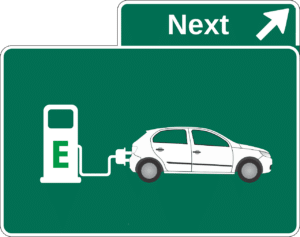
If anyone tells you a vehicle is an investment, don’t trust them – they’re lying! Unless you own a vehicle destined to become highly collectible, you’re going to lose thousands of dollars through depreciation. That’s not to discourage you from owning a car. Just be aware that it’s all but guaranteed to lose value between the time you buy it and when you sell it.
Depreciation happens for a number of reasons. You could get into an fender bender, and suddenly the car’s value is lower – even after you get it repaired. The deep, dark shine in your paint tends to become dull after a while, and things slowly deteriorate or break down.
Depreciation is depressing, but very normal for cars. That doesn’t mean you have to just accept that what you paid $20,000, $30,000, or $50,000 for is now worth a fraction of the purchase price. While you can’t stop depreciation in its tracks, these five tips can help keep your resale value high as possible.
Routine Maintenance
When the time to sell your car comes, any prospective buyer is going to kick the tires. They’ll check the fluids under the hood, take your car for a test drive, look for warning lights, and in general, look for problems. The two big things a buyer looks for concerns that will need to be addressed soon like overdue maintenance and impending repairs, and for issues that will cause wasted time, headaches, and frustration.
When a buyer sees issues that will cost them time and money, it’s reflected in the amount they’re willing to pay for your vehicle. In your owner’s manual, the routine maintenance checklist is the best way to keep your car from falling into disrepair or behind on maintenance.
Safe Driving Habits
It should go without saying, but it does bear a mention. Consciously maintaining safe driving habits will have a positive effect on your vehicle’s resale value. It happens a few ways including:
• Staying out of accidents. It’s a no-brainer, really. If you intentionally avoid neighborhoods or intersections where the probability of collisions is highest, your risk of an accident is lower. Less damage on your car translates to higher resale value.
• Reduced maintenance and repairs. Driving like a raging lunatic with hard acceleration, even harder braking, and two-wheeled turning takes a toll on tires, brakes, suspension – everything. Your vehicle will shows the signs of a rough life.
• Improved dependability. Running your car at redline – that is, driving it hard – will eventually cause a breakdown. Even your vehicle’s powertrain computer adjusts to burn more fuel to achieve the performance you keep demanding. Eventually, going hard will show up in wear and tear or reliability issues.
Drive reasonable. Drive responsible. Stick with the basics like shoulder-checking before changing lanes and paying attention to traffic signs, and driving to the conditions.
Keep It Clean
Of course, before you sell your car you’ll wash and vacuum it. But if there have been years where it hasn’t been cleaned, it’s going to show. Dirt and sticky goo cling to door pockets and there are bits of French fries between the seats. The plastic in front of the gauges and your infotainment screen are scratched and scuffed from wiping the dust off periodically. And the paint? It has more swirls than an ice cream shoppe in summer.
Cleaning your car on a regular basis not only gets road grime, sand, and salt off the paint and other exposed metal components. It prevents abrasive wear on visible surfaces, inside and out.
Prevent Abnormal Wear
A vehicle with the outer seat edge worn through, foam exposed. Doggie scratches on the backseat leather seat surface. Carpets worn to rubber from boot heels. Paint chips all along the rockers. These are common issues that car owners face, and they all detract from a car’s value. But each of them can be prevented before they happen.
If you want to keep a high resale value for your car, protect it. Purchase and install accessories like seat covers, floor mats, and mud flaps that prevent abnormal wear. It costs a bit up front, but it’s going to save much more than your purchase price in the long run.
Keep Good Records
If you want to impress a potential buyer, show them your vehicle’s history. When they can see when the last oil change was done, when you bought your new tires, or how long ago recalls were completed, it’s bound to bolster your asking price. That requires some forethought – you know, before you toss your receipts.
Keep your maintenance and repair records, but also any issues that were corrected under warranty. And to make your sales pitch as strong as possible, include a vehicle history report as well.
Are you a car dealer? Check out our dealer program!
Did you know vehicle history reports increases the likelihood of a purchase by 90%? Build that trust with VINsmart vehicle history reports!
Featured
Tags
Tags
Newsletter

Matthew Beasley
I am the Director of Marketing at VINsmart and previously worked for Cox Automotive in the marketing department designing advertisements for Autotrade and Mainhiem. I wouldn't call myself an "Automotive Enthusiast"; however, I do love marketing in the automotive industry. I've become an EV junky recently. I am a Tesla owner and have a new found love for advanced technology in automotive.




